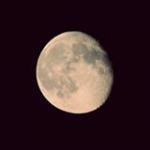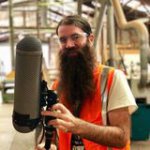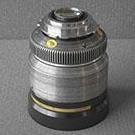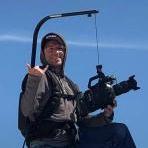Leaderboard
Popular Content
Showing content with the highest reputation on 02/20/2015 in all areas
-
From http://eddavid.tumblr.com/post/111 I was told I had to redo my W9 income tax form, because the form I filled out was the Nov 2013 form, which was expired. So I went and filled out the Dec 2014 form and noticed something new - a whole extra page of paperwork - It went from a three page document to a four page document - and that’s our government, the king of bureaucracy, in action. Bureaucracy was the big theme in this month’s Harpers, currently my favorite magazine of all time, up there with the Atlantic and the Week and the New Yorker as what I read (sorry novels, I haven’t read you guys in a while and maybe that’s another essay to write about next). In this issue, they mentioned that bureaucracy also bleeds into the arts, which is my field of work as a cinematographer. The use of credentials - like a police chief or military commander or certified doctor - a practice that exists in places like Soviet Russia have fallen into our field. The highest esteemed titles, like DGA or ASC even go after your name on a movie title (also the only art industry in the world where you put the credits on an advertisement for the product - does Colgate Toothpaste do that?) Saying “Joe Schmoe, ASC” does that make Joe Schmoe more certified than his name without that title? Does it make the film any less beautiful? At what point in the arts are you certified as an artist? At what point can you say, “yes I know what I am doing.” Some great artists do their best work before they “become” recognized. A lot of famous artists reminisce about how much easier it is for them to create good art before they are lauded, such as Jackson Pollock. Once he was called by Life Magazine, “is this the greatest artist of our generation?” his life suffered immensely. My theory is, you are an artist when you create art. So anyone is an artist, if they put pen to paper, dirty finger to keyboard. But in our filmmaking industry my whole life I have felt guilty because I didn’t go to a film schoo, I didn’t get certifiedl - I went to a liberal arts college and was an anthropology major and almost a film studies minor, as well as one point a music major. I didn’t have the training everyone seemed to be whispering that I needed. I felt so guilty, that I didn’t know how to load a film mag, that I didn’t ever sit down and learn lighting or even lenses. I had no photography background - that was my sister. I didn’t know the difference between a wide angle lens and a telephoto lens, surrounded by many people who did. I didn’t know soft light vs hard light, or the angle of lighting and how it changes on a face in shadows. I grew up shooting documentaries and prank videos on VHS-C cameras - made one in high school called “perspective” and interviews young people, older young people, and my parents about various historical issues like the Vietnam war, trying to show how our age affects how we interpret history, as well as education level, etc - bigger issues I didn’t address like race and class, because, well, I grew up in the wonderful safe bubble of Fairfield, CT. I didn’t light it - I didn’t think about the aesthetics of it at all, just what I was trying to say. But that guilt of me not having the credentials for filmmaking has haunted me for so long. I would show up on set and be so nervous that I didn’t know anything about lighting - or 35mm film or real lenses - that I would call for the wrong lens - that I was being judged by everyone. I remember about 7 years ago or so I was on a low budget tv spec spot and an electric asked me my age and I think I said I was older than I was so I could pretend that I knew what I was doing. But the more I do cinematography, the more I know that whatever unique perspective I have is an advantage. Not going to film school, coming from an anthropological and philosophical perspective gives me strength, a different way of seeing. And it is skills that can actually be learned on the job, online on forums, by talking and observing and learning from others. I have learned so much about filmmaking from a vimeo series called “Every Painting a Frame” that is just some passionate film editor named Tony Zhou doing it on his own time as from a youtube series spoofing George Lucas, and of course on set mentors like the great DP David Tumblety I shot with a few times. Everyone who brings a fresh perspective to filmmaking is so needed - we can not just have people do films all the same way. I think more and more there is a gluttony of film set behaviors that rewards the same and bureaucratic method of making “films” - traditional, boring, waiting - not just trying to find moments and capture little tiny ideas and bigger thoughts - but this route system of regimented military-like crew that does things traditional ways that people like Paul Thomas Anderson rally against - no marks - no lets go overt here instead - untraditional approaches that open up wonder again. But also that wonder is not anything without intense concentration and commitment and hard work. You can’t be lazy and successful. It’s sweat. My Puritanical work ethic was at one point rewarded vastly by my former boss and greatest mentor, Joe Baron. He runs Attitude, Inc - a post house in New York City. He taught me about perseverance - about going for perfection - “crossing the finish line” - which would sometimes be at 3am to get a piece to a level of standard he believed in. To not be mediocre, no matter what anyone else believes - to put one’s full heart into anything. To not get upset and bogged down by bureaucratic methods - to just be a part of a small group of people and be passionate. He found my strengths, and didn’t make me feel bad about my flaws, my quirks. I didn’t learn this in school, and this mentorship under him, as I assistant edited under him for two years. And his voice has been guiding me ever since, as I navigate through my adulthood. And whoever I get down because maybe I switch a lens too late or change my mind too suddenly (all artists need to be open to changes that can occur at any moment - spontaneity) - I always think of him there, watching over, making sure I’m okay.4 points
-
I'm hoping to invest in some lighting and think now might be a good time to look at LEDs. I'm particularly interested in a 350w fresnel from Ianiro http://www.ianirouk.com/product.php?ProductID=763 as well as a pair of matching 100w fresnels http://www.ianirouk.com/product.php?ProductID=772 Has anyone here used such lighting or have any feedback on how they would compare to Arri tungstens or hmis I don;t want to have to deal with the issue of generators or taking special feeds from a ring main. I just want to run lights off either an dc-ac inverter and some leisure batteries or from normal 13a sockets as found in the home. I'm seeing a 95% CRI rating, and quoted tungsten/hmi equivalents, but in real life are they a worthwhile investment over say a set of 3 redheads which work out at about 1/4 the price for good condition used 800w jobs.1 point
-
Two interesting rumors for Nikon's cameras: 4k will be introduced to the Nikon 1 series of cameras, and the live view aperture crippling will be removed from D7200. According to nikonrumors D7200 will also feature 720p at 120 fps. http://nikonrumors.com/2015/02/18/nikon-d7200-announcement-before-march-13.aspx/ http://nikonrumors.com/2015/02/17/nikon-1-j5-mirrorless-camera-rumored-to-have-4k-video.aspx/1 point
-

Samsung NX1 firmware v1.21 up now
Mozim reacted to Marco Tecno for a topic
What about 2.5k? Would be great for: 1) 1080p downscaling in pp 2) stabilization in pp 3) rolling shutter1 point -
Actually, DJI is just another Chinese Shenzhen company, so the thing is, you're not even really paying so much because of the 'brand'. They've just looked at the pro choices out there and made something that's just as much of a tool and brought it somewhat more of a consumer level. It's not popular because it's the cheapest choice out there, but because it works so well and has a very solid line-up of pro level multirotors. They know their stuff. Whilst all these cheap choices basicly just remain toys. The same way I would say 'don't go amature, gopro', I would say 'why? Just get the DJI!'. I'm the last one to convince you not to buy cheap stuff from China, coming from years and years of buying audio gear, radio controlled stuff, flashlights, tablets, smartphones and all sorts of gadgetry from there. I even was in Hong Kong a few months ago to be close to the action, visiting the Hong Kong Electronics Fair and getting across the border at Lo Wu to visit Shenzhen. Just this very morning the postman dropped off a WLToys V931 helicopter. But as much fun as these things are to play around with, I wouldn't get something from these guys if I were to shoot aerial video... I would go with DJI, even if that meant saving up to it. I think they give you the best value for a fair price. If you want something to rely on, with a proven track record, is nice to work with, tilting capabilities, that gets you the results... I'd say they're the best bet. But of course, if you have no other option than to go with something like the CX20... it's gonna be closer than nothing and New Zealand has to be one of the finer places you'd want to fly an aerial platform above for sure. I get that. Maybe over at RCGroups they've got some nice tips 'n tricks for you. Gd luck!1 point
-

Ultra low budget quadcopter for filming with a GoPro?
Xavier Plagaro Mussard reacted to IronFilm for a topic
That is why I have had for the past year a smaller quad (with an SD camera on it) to practice on :-)1 point -
Agree with this, the audio gain issue needs to be fixed. It's a significant problem with the camera for interview/doc work. Another great to have feature. 2K Mode (2048x1080)1 point
-
Personally I'm looking forward to the D7200. I'm hoping for a photo camera that is as at least as good as the Canon 7D MkII, as in: 10fps burst rate, great autofocus, fantastic dynamic range, durable and rugged body, basically a small version of their D4s. I also expect the video mode to be at least as good as the D5300 / D750 video mode (which is very good already). Being able to change the aperture in live view is a must (and they'd be stupid not to include it). It'd be nice to see a high-quality 120fps mode, flat picture profile, Zebra, Peaking etc. It's going to be a photo camera first and foremost, but if it offers good video capabilities like they've done in the past, then I'm sure people who shoot both video and photos will appreciate the camera.1 point
-
Great suggestions from everyone! I would very much like to see them remove the crazy "hiss" sound (some sort of auto gain control feature?) when recording to internal and external microphone.1 point
-
About the 'etc'... not sure if it will fit your needs, but maybe it would be worth looking into the Pixapro Nitsan was raving about? Still need a proper light kit myself. I kinda make do with three small Aputure LED panels at the moment (AL-H160, AL-198 & AL-198C).1 point
-
Okay Then: Hopefully possible - Clean 8-Bit 4:2:2 1080p output- Currently it only exports clean 4K, so we cannot use an external recorder with the excellent 1080p mode on the camera. -Digital Punch in while filming/Adjustable in frame -120 fps mode under the 1080 24p setting. - Exposure Compensation in Manual Mode - Exposure compensation that just adjusts the ISO, controlled on rear control dial, for heavily backlit scenes when shooting weddings/docs. Just have it adjust nothing if its not set to Auto-ISO - Ability to map Audio level to the control dials -Digital Telephoto - Similar to ETC Mode on GH series, center crop of the sensor in 1080p. -Ability to manually enter focal length so old lenses work with flashes Long Shots LOG 4K Anamorphic Mode - Center of Frame for 2X Anamorphics, would also hopefully help with rolling Shutter because it would not be downscaled. 6.5K Bursts at 24p (however long until the buffer maxes out) 240 fps 1080p Burst (however long until the buffer maxes out) Also if you can get a word in have them talk with Adobe about getting H265 working in Premiere Pro, they already bundle the camera with Lightroom, so they should have a dialog between them already.1 point
-
"Sweet Gourmandise" - A culinary film (shot with Canon 5D MarkII)
Gadhai reacted to florentigla for a topic
Hello everyone ! This is my new movie. It's entitled « eet Gourmandise ». This is a film about the preparation of cake, a "entremets", specially created for the film. You can see it there : It was shot with : Canon 5D MarkII with Canon 24-70mm f/2.8 L + 70-200mm f/2.8 L + 100mm Macro. It was editing with Avid and color graded with DaVinci Resolve. I wanted to show you and to have your feedbacks. So if you like it, do not hesitate to share the link of the video on social networks, with your community (Facebook, Twitter ...) Thank you. Have a nice day. ...and "Bon Appétit" !! Florent.1 point -
It's a good camera Matt. It's not as fussy as some of you like to get into. And it's not the best tool for critical work... but knowing that if I wanted to, I could rent a Shogun and get pretty much all I'd want with regard to record length, and range, out of a $900... is cool. I don't expect you to relate to that. I "get" what you and many othera here get off on... really, when it gets down to it... I'm going to just shut myself off right here about that. But, for those who're purely interested in the potential of doing great things with very little... even low-end consumer grade... then the information is exciting. Some of us aren't into tinkering with subtleties that other's are so obsessed with. So yeah, knowing that if I needed 4:2:2 and didn't have to bother with a bunch of lens changes, and had planned to not need anything beyond ISO800... and all I had to do was rent or borrow a Shogun for the day, etc. then yeah... that's something I might want to do and am thrilled to now know it's an option. We've chatted a bit privately in the past, but you really don't know me. If you did, you'd know that I'd ultimately be much more proud of myself if I made a cinematic, artistic expression with the lowest end gear, for the lowest cost, inside the reach of anyone for the most part... rather then citing off a bunch of tech gear and grading tricks/expertise, etc. BS about how I bent this sensor and lens combination, effect, with this incredible lighting technique to bid my artistic will, etc. Nothing wrong with that, but If I could find a way to it with the least amount of gear, I'd say that's more impressive that having the state-of-the-art at your fingertips. Yeah, you could do it with an iPhone, but in many instances the image quality might be distracting. I'm looking for a way to get the viewer involved, without using tech as a crutch. Does that answer your question?1 point
-

Why are +0.4, +0.5 diopters more desired than +1 diopters?
Rob Bannister reacted to richg101 for a topic
if you can find a +1 achromat it'll still be a great addition to any lens collection. a +0.5 non achromat isnt really that special since it doesnt correct for CA and using on anything more than a small sensor/aperture it'll degrade the optical quality. But the reasons a +0.4 achromat is more desirable than a +1 achromat is this:- a +0.4 achromat will reduce the minimum focus distance of your lens to almost half it;s original minimum focus (if you have a 1m minimum, the +0.4 achromat will change minimum to 0.6m. However due to the weak diopter value it will still allow focus to all the way to 2.2mtrs. this is a really good focus range for racking indoors. a +1 achromat will reduce a 1m minimum to 0.2m so can get closer, but maximum distance when the lens is set to infinity will be 1 meter. As a result, your focus pull range is drastically reduced. So to answer your question, the reason is that a weaker diopter value lends itself well for users requiring focus pulling between 0.6m - 2.2m - still a rather useful range for medium/close shots, or powerful closeups from fast 85mm lenses which tend to have a minimum focus of 1m or longer.1 point




